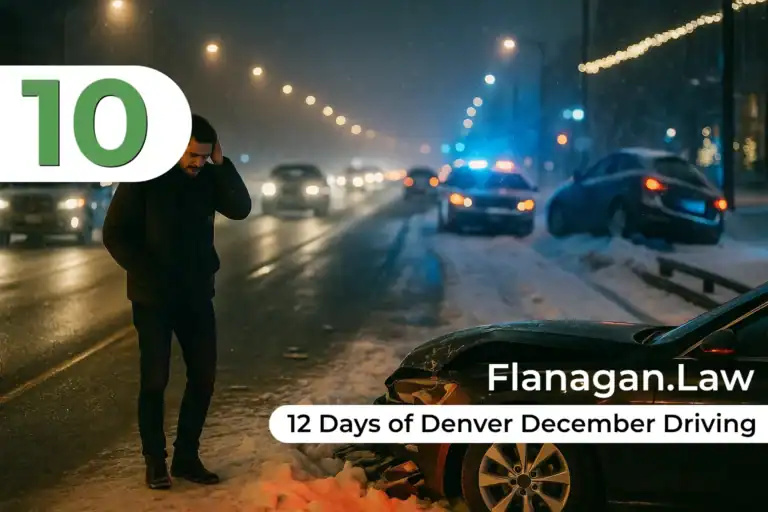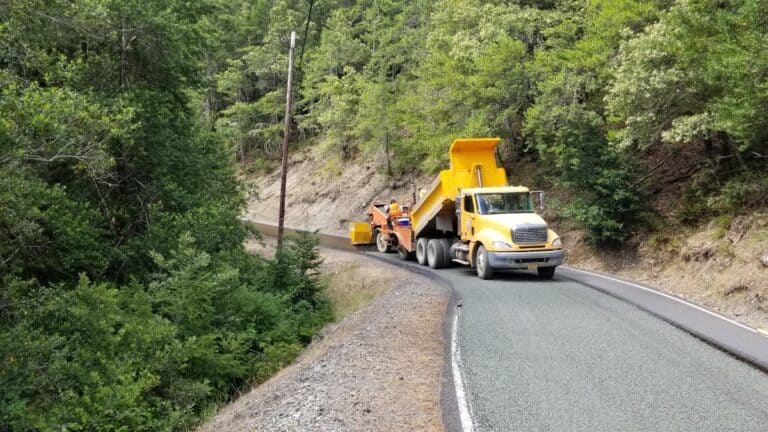Can You Be Ticketed for Driving Too Slowly in Colorado?

Introduction
When it comes to safe driving, most people think about not exceeding the speed limit. However, driving too slowly can also be dangerous and is regulated by Colorado law. Whether you’re cruising through Commerce City or navigating the bustling streets of Denver, maintaining a safe speed is critical for the flow of traffic and your safety. But can you actually get a ticket for driving too slowly in Colorado? The short answer is yes. In this article, we’ll explore Colorado’s minimum speed laws, why driving too slowly can be problematic, and the legal consequences of impeding traffic.
Minimum Speed Laws in Colorado
Colorado law requires drivers to maintain speeds that are reasonable and prudent given the road conditions, traffic, and weather. While speed limits are usually set to prevent drivers from going too fast, there are also provisions for those who drive too slowly, potentially disrupting traffic flow.
1. Basic Rule: Drive at a Safe Speed
Colorado’s law (C.R.S. 42-4-1103) states that “No person shall drive a motor vehicle at such a slow speed as to impede or block the normal and reasonable movement of traffic.” In other words, while there isn’t always a posted minimum speed, drivers are expected to maintain a speed that keeps up with the flow of traffic. This ensures that traffic moves efficiently and helps prevent accidents caused by sudden stops or slow-moving vehicles.
2. Interstate Highways and Minimum Speeds
On Colorado highways and interstates, particularly in areas like Broomfield or Aurora where high-speed traffic is common, driving too slowly can be especially dangerous. Some highways, such as Interstate 25 or Interstate 70, may have posted minimum speed limits. On these roads, driving slower than the posted minimum can result in a ticket.
3. Keep Right Unless Passing
Another related law in Colorado requires slower drivers to stay in the right lane. This is particularly important on multi-lane roads and highways. If you’re driving below the normal speed of traffic, even if you are at the speed limit, you are expected to stay in the right-hand lane unless passing. Failing to do so can also lead to a citation for impeding traffic.
Why Driving Too Slowly is a Safety Concern
Driving too slowly can be just as dangerous as speeding. Here are a few reasons why maintaining a reasonable speed is crucial for traffic safety:
1. Causing Traffic Congestion
When a vehicle is moving too slowly, it can create a bottleneck effect, causing traffic to back up. In high-traffic areas like Denver or Westminster, this can lead to frustration for other drivers and increase the risk of rear-end collisions as drivers attempt to brake or pass.
2. Encouraging Dangerous Overtaking
Slow-moving vehicles may cause other drivers to take risks they otherwise wouldn’t, such as unsafe passing on two-lane roads or highways. This increases the likelihood of head-on collisions or accidents during lane changes.
3. Impairing Emergency Response
Slow-moving vehicles can impede emergency response vehicles like ambulances, fire trucks, or police cars, delaying their arrival to critical situations. This is especially a concern in busy urban areas like Commerce City.
Legal Consequences for Driving Too Slowly in Colorado
If you’re caught driving too slowly or impeding the flow of traffic, you can face legal penalties. Here’s what you might expect:
1. Traffic Citations
Law enforcement in Colorado has the authority to issue traffic tickets to drivers impeding traffic by moving too slowly. The fine for impeding traffic can range from $50 to $200, depending on the severity of the situation. Repeat offenders may face higher fines or additional penalties.
2. Points on Your Driver’s License
In Colorado, driving too slowly and impeding traffic can add points to your driver’s license. Accumulating too many points can lead to the suspension of your driving privileges. For example, being cited for driving too slowly may add two or three points to your license, which can affect your insurance rates as well.
3. Court Appearance
In more severe cases, particularly if your slow driving results in an accident or a hazardous situation, you may be required to appear in court. Failing to show up for a traffic court date can result in additional fines or even a warrant for your arrest.
Practical Tips for Avoiding Slow-Driving Violations
Driving safely in Colorado requires balancing the need to maintain a reasonable speed while also taking into account road conditions, weather, and traffic. Here are some tips to avoid being cited for driving too slowly:
1. Keep Up with the Flow of Traffic
Even if there’s no posted minimum speed limit, it’s essential to drive at a pace that matches the flow of traffic. This helps ensure that other drivers aren’t forced to suddenly slow down or pass you in unsafe conditions.
2. Use the Right Lane
If you’re driving at a slower speed than other vehicles, stay in the right-hand lane. This is particularly important on highways where faster-moving vehicles typically use the left lane. The “keep right unless passing” rule is a simple way to avoid traffic violations.
3. Be Mindful of Weather and Road Conditions
In adverse weather conditions, such as heavy rain, fog, or snow, it’s understandable to drive more cautiously. However, if your speed is significantly below the posted limit and impedes traffic, consider pulling over to let other vehicles pass.
4. Use Hazard Lights When Appropriate
If you’re forced to drive slowly due to a vehicle issue or adverse weather, use your hazard lights to signal to other drivers that you’re moving slower than usual. This can help prevent rear-end collisions and improve overall road safety.
Conclusion
While speeding is often seen as the most dangerous driving behavior, driving too slowly can also pose serious risks and lead to legal consequences. In Colorado, whether you’re driving through busy city streets in Commerce City or along open highways in Denver, it’s essential to maintain a speed that keeps up with the flow of traffic. By following the law, staying in the right lane, and adjusting your speed based on road conditions, you can avoid citations and ensure a safer driving experience.
If you’ve been cited for driving too slowly or need legal assistance with a traffic-related issue, Flanagan Law is here to help. Our experienced attorneys can guide you through the legal process and work to protect your driving record.
FAQ
Can I get a ticket for driving too slowly in Colorado?
Yes, driving too slowly and impeding the flow of traffic is illegal in Colorado. You can receive a traffic citation and face fines for failing to maintain a reasonable speed.
What is the minimum speed limit on Colorado highways?
Some highways, such as Interstate 25 or Interstate 70, may have posted minimum speed limits. If you’re driving slower than the posted limit, you could be cited for impeding traffic.
How many points will I get on my license for driving too slowly?
Driving too slowly and impeding traffic may result in two or three points being added to your license. Accumulating too many points can lead to license suspension.
Can I drive slowly if the weather is bad?
While it’s important to adjust your speed for adverse weather conditions, driving significantly below the speed limit in such situations could still result in a citation if you are impeding traffic. Use your best judgment, and if necessary, pull over to let faster-moving traffic pass.
What should I do if I need to drive slower than normal?
If you need to drive slowly due to a vehicle issue or road conditions, stay in the right-hand lane and use your hazard lights to alert other drivers. This helps keep traffic flowing safely.
Driving safely means more than just avoiding speeding. For legal guidance or traffic-related concerns, reach out to Flanagan Law for expert advice and representation.






